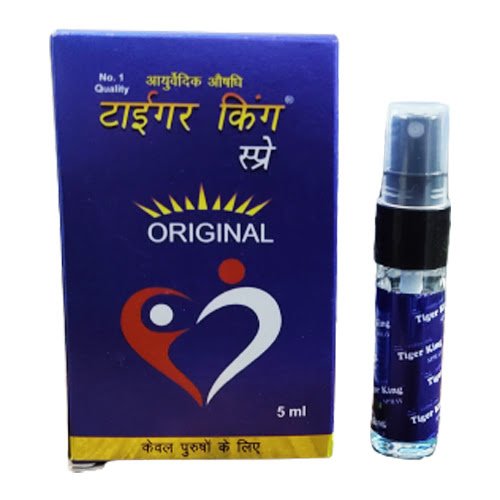Ayurveda medicine has been an integral part of traditional Indian healthcare for centuries. Its natural remedies and holistic approach have gained popularity worldwide. However, it’s crucial to understand that Ayurvedic remedies may also come with potential side effects that can be harmful to one’s health. In this article, we will provide a comprehensive guide to Ayurveda medicine side effects, including the potential risks and adverse effects of using Ayurvedic treatments.
Key Takeaways:
- Ayurveda medicine is a traditional Indian healthcare system that uses natural remedies and a holistic approach.
- Ayurvedic remedies may have potential side effects that can be harmful to one’s health.
- This article will provide a guide to the potential risks and adverse effects of using Ayurvedic treatments.
Understanding Ayurvedic Medicine: The Basics
Ayurvedic medicine, also known as Ayurveda, is an ancient system of healing that originated in India over 3,000 years ago. Ayurveda is based on the belief that health and wellness depend on a delicate balance between the mind, body, and spirit. The goal of Ayurvedic medicine is to promote overall wellness and prevent illness by maintaining this balance through different forms of treatments.
Ayurvedic treatments can include herbal remedies, dietary changes, massage, meditation, and other holistic approaches. While Ayurveda has gained popularity in recent years, it’s important to be aware of the potential side effects and health concerns that come with using Ayurvedic medicines and treatments.
Ayurveda Medicine Side Effects
Just like any other type of medical treatment, Ayurvedic medicine can come with potential side effects. Some Ayurvedic treatments have been found to cause adverse effects, including liver damage, lead poisoning, and other serious health issues. It’s important to be aware of the potential risks and health concerns associated with Ayurvedic treatment.
Ayurvedic Treatment Side Effects
Ayurvedic treatments can come with different side effects depending on the type of treatment and the individual’s body. Some common side effects of Ayurvedic treatment include nausea, diarrhea, and skin rashes. It’s important to consult with a qualified Ayurvedic practitioner to discuss any potential side effects before starting treatment.
Health Concerns with Ayurvedic Medicines
Some Ayurvedic medicines have been found to contain high levels of toxic metals, including lead, mercury, and arsenic. These metals can build up in the body over time and cause serious health problems, including nerve damage, developmental delays, and even death. It’s important to source Ayurvedic medicines from reputable suppliers and to consult with a qualified practitioner before using any Ayurvedic medicines.
Common Side Effects of Ayurveda Medicine
Ayurvedic medicine, a traditional form of healing from India, has been gaining popularity across the globe. However, it is important to be aware of the potential side effects and risks associated with the use of Ayurveda medicine. While many Ayurvedic remedies are safe and effective, some may cause negative impacts on the body.
One of the hazards of Ayurveda medications is the risk of toxicity, especially if the remedies contain heavy metals such as mercury, lead, and arsenic. These metals can accumulate in the body over time and cause detrimental effects on the nervous system, liver, and kidneys.
Additionally, the improper preparation and administration of Ayurvedic therapies can result in adverse effects. For example, using certain herbs or remedies in excessive quantities, or without proper knowledge and guidance, can cause unpleasant side effects such as digestive problems, skin rashes, and allergic reactions.
It is also important to note that certain Ayurvedic remedies may interact with other medications, potentially causing side effects or reducing the effectiveness of both treatments.
Overall, while Ayurveda medicine can offer a range of benefits, it is crucial to understand the potential side effects and negative impacts of Ayurvedic therapies. To minimize the risks, it is recommended to seek guidance from a qualified Ayurvedic practitioner and carefully follow the recommended dosages and administration methods.
Risks and Safety Concerns of Ayurveda Medicine
Ayurveda medicine is an ancient practice with a rich history and cultural significance in India. However, it is crucial to acknowledge the potential risks associated with Ayurvedic remedies. While Ayurveda medicine is generally safe when used correctly, it can cause adverse effects if not administered or consumed properly.
Some of the concerns about ayurveda medicine side effects include the use of heavy metal and toxic ingredients, which may lead to health complications when not appropriately processed or administered. Additionally, some ayurvedic remedies may interact with other medications, leading to adverse reactions.
It is essential to prioritize ayurveda medicine safety by only using products from reputable sources and seeking guidance from qualified practitioners. As with any medical treatment, it is crucial to follow the recommended dosage and instructions carefully, and avoid self-medication.
Safety Measures and Precautions for Ayurveda Medicine
Several measures can be taken to minimize the risk of experiencing side effects from Ayurveda medicine. These include:
- Consulting with a qualified Ayurvedic practitioner before starting any treatment
- Informing your doctor of any current medications or health conditions before taking ayurvedic remedies
- Using only high-quality, approved products from reputable sources
- Complying with dosage recommendations and instructions from qualified practitioners
- Avoiding self-medication and seeking professional guidance whenever necessary
By prioritizing Ayurvedic medicine’s safety and taking the necessary precautions, you can reduce the risk of experiencing adverse effects and enjoy the benefits of traditional Ayurveda medicine.
Potential Side Effects of Traditional Ayurvedic Remedies
Ayurvedic remedies have been used for centuries to treat various ailments, but they come with potential side effects that one must be aware of before using them. Below are some of the drawbacks of relying solely on traditional Ayurvedic remedies:
- Herb-Drug Interactions: Combining Ayurvedic remedies with conventional medications can lead to herb-drug interactions, which may cause harmful effects on the body. For example, taking guggul along with blood-thinning drugs may increase the risk of bleeding.
- Contamination: Ayurvedic remedies are often made from herbs and minerals, which may be contaminated with heavy metals such as lead, arsenic, and mercury. Long-term use of such remedies can result in heavy metal poisoning, which can lead to adverse health effects.
- False Claims: Due to the lack of proper regulation, some manufacturers may make false claims about the efficacy of their Ayurvedic remedies. This can lead to people using ineffective products, wasting their time and money.
It is important to note that not all Ayurvedic remedies come with side effects, but it is essential to be cautious and informed before trying any new remedy. One must always consult with a qualified Ayurvedic practitioner and ensure that they source their remedies from reputable manufacturers.
Safety Measures and Precautions for Ayurveda Medicine
While Ayurveda medicine is a time-honored tradition in India, it is important to be aware of the potential side effects and risks associated with its use. Here are some safety measures and precautions that can help minimize the risk of experiencing adverse effects:
- Consult with a qualified Ayurvedic practitioner: It is crucial to seek guidance from a well-trained practitioner who can assess your health needs and create a personalized treatment plan. They can also monitor your progress and adjust your treatment as needed.
- Be honest about your medical history: Before beginning any Ayurvedic treatment, be sure to provide a comprehensive medical history to your practitioner. This information will help them screen for any potential risks or complications.
- Stick to recommended dosages: Ayurvedic remedies are typically prescribed in specific amounts and durations, and it is important to follow these guidelines. Avoid increasing the dosage or taking the remedy for longer than recommended.
- Be cautious of counterfeit products: Some Ayurvedic products sold in India may contain harmful substances or may not be regulated. Purchase products from a trustworthy source and research the manufacturer’s reputation.
- Monitor for side effects: While some Ayurvedic remedies may cause mild side effects, it is important to monitor for any serious adverse reactions. If you experience symptoms such as severe allergic reactions, difficulty breathing, or chest pain, seek medical help immediately.
Remember, Ayurvedic medicine should be used in conjunction with Western medicine and not as a replacement. By taking the necessary precautions and seeking guidance from a qualified practitioner, you can safely incorporate Ayurvedic remedies into your health routine.
Seeking Professional Guidance: The Role of Ayurvedic Practitioners
When it comes to Ayurveda medicine, seeking the guidance of a qualified practitioner is essential. Ayurvedic practitioners are trained to assess an individual’s unique constitution and provide personalized treatment plans. They have a deep understanding of Ayurveda principles and practices, and are equipped to guide patients towards safe and effective remedies.
In addition to providing treatment, Ayurvedic practitioners play a crucial role in ensuring the safety of Ayurvedic medicines. They are aware of the potential side effects and adverse reactions that may arise from certain remedies and can advise patients on appropriate precautions.
It is important to note that not all Ayurvedic practitioners are created equal. When seeking professional guidance, it is essential to find a qualified practitioner with extensive training and experience. Look for practitioners who are registered with professional organizations and have received certification from recognized institutions.
By seeking the guidance of a qualified Ayurvedic practitioner, individuals can ensure the safety and efficacy of their Ayurveda treatments. Remember, your health is in your hands, and seeking professional guidance can go a long way in ensuring positive health outcomes.
Balancing Tradition and Modern Medicine: Integrative Approaches
Ayurveda medicine has been practiced in India for thousands of years and is deeply rooted in the country’s culture and traditions. However, the potential side effects and adverse effects associated with Ayurveda medicine have raised concerns among medical practitioners and researchers.
One approach to addressing these concerns is by integrating Ayurveda medicine with modern medicine. Integrative medicine combines traditional and evidence-based practices to provide a more comprehensive approach to healthcare.
By integrating Ayurvedic treatments with modern medicine, patients can potentially benefit from the strengths of both systems. Ayurveda offers personalized treatment plans tailored to an individual’s unique body constitution, while modern medicine provides evidence-based diagnosis, testing, and treatment options.
However, it is essential to consider the potential side effects and adverse effects that may arise from using Ayurveda medicine alongside other medical treatments. Research has shown that some Ayurvedic remedies may interact negatively with prescription medication, leading to harmful effects.
To mitigate these risks, it is crucial to seek guidance from qualified Ayurvedic practitioners who have experience in integrating Ayurveda medicine with modern medicine. They can help patients navigate the potential risks and benefits of combining Ayurveda with other medical treatments and develop a personalized treatment plan that meets their unique healthcare needs.
Ultimately, finding a balance between tradition and modern medicine is key to ensuring the safety and efficacy of Ayurveda medicine. Integrative approaches that combine the strengths of both systems can provide patients with a more comprehensive and personalized approach to healthcare while mitigating the potential side effects and adverse effects of Ayurveda medicine.
Research and Regulation of Ayurveda Medicine
Ayurveda medicine has been used for centuries in India and has gained popularity worldwide in recent years. However, the use of Ayurvedic remedies has been associated with harmful effects. It is essential to research and regulate the use of Ayurveda medicine to ensure its safety and efficacy.
Harmful Effects of Ayurveda Medicine
Although Ayurvedic remedies have multiple benefits, there have been cases of harmful side effects. Some Ayurvedic products have been found to be contaminated with toxic metals such as arsenic, lead, and mercury. These metals can cause severe health problems, including kidney damage and neurological problems.
There have also been instances of contamination with bacteria and fungi, leading to infections. Some Ayurvedic remedies have been found to contain steroids, which can cause liver damage. Therefore, it is crucial to know the possible side effects and to consult a qualified Ayurvedic practitioner before using any Ayurvedic remedy.
Ayurvedic Medicine and Possible Side Effects
Ayurvedic medicine, like any other medical treatment, can have possible side effects. The use of Ayurvedic remedies can cause allergic reactions, skin irritation, and gastrointestinal problems. Some Ayurvedic remedies can interact with other medications, leading to adverse effects.
It is essential to take precautions while using Ayurvedic remedies and consult a qualified practitioner who can provide personalized treatment plans. It is also essential to follow the safety measures and regulations set by the authorities.
Regulation of Ayurveda Medicine
The Indian government has set up the Ministry of AYUSH (Ayurveda, Yoga & Naturopathy, Unani, Siddha, and Homeopathy) to regulate the use of traditional medicines. The Ministry has formed the Central Council of Indian Medicine and the Central Council of Homoeopathy to regulate the practice and education of Ayurveda medicine.
The government has also set up the Pharmacopoeia Commission for Indian Medicine and Homoeopathy to establish quality standards for Ayurvedic medicines. The commission has published the Ayurvedic Pharmacopoeia of India, which provides quality standards for Ayurvedic remedies.
Conclusion
The research and regulation of Ayurveda medicine are necessary to ensure its safety and efficacy. It is essential to know the possible side effects of Ayurvedic remedies and to consult a qualified practitioner before using any Ayurvedic product. Following the safety measures and regulations set by the authorities can help minimize the risk of harmful effects and ensure the safe use of Ayurveda medicine.
Conclusion
Ayurveda medicine is a traditional practice that has been used in India for centuries. While it offers many benefits, it’s important to also be aware of the possible side effects and risks associated with its use.
Throughout this guide, we’ve discussed the potential adverse effects of Ayurveda medicine and the importance of taking safety measures and precautions to minimize the risk of experiencing side effects.
It’s essential to seek guidance from qualified Ayurvedic practitioners who can create personalized treatment plans and monitor your progress. Integrating Ayurveda with evidence-based approaches can also provide a balanced and holistic approach to healthcare.
Lastly, ongoing research and regulation are necessary to ensure the safety and efficacy of Ayurvedic treatments. If you’re considering Ayurvedic remedies, it’s important to make informed decisions and prioritize your health and safety.
Stay Informed for Safe Ayurvedic Treatment
By staying informed and seeking guidance from qualified practitioners, you can harness the benefits of Ayurveda medicine while minimizing the risks. Make informed decisions and prioritize your health and safety.
FAQ
Q: What are the potential side effects of Ayurveda medicine?
A: Ayurveda medicine can have various side effects, including allergic reactions, digestive issues, and skin problems.
Q: Are there any health concerns associated with Ayurvedic medicines?
A: Yes, some health concerns include the potential for heavy metal contamination and interactions with conventional medications.
Q: What are the common side effects of Ayurveda medicine?
A: Common side effects may include nausea, diarrhea, headaches, and dizziness.
Q: What are the risks and safety concerns of Ayurveda medicine?
A: Risks include potential adverse reactions, inadequate regulation, and the risk of misdiagnosis or incorrect treatment.
Q: Can traditional Ayurvedic remedies have potential side effects?
A: Yes, traditional Ayurvedic remedies can have potential side effects that may impact an individual’s health.
Q: What safety measures and precautions should be taken with Ayurveda medicine?
A: It is important to consult with a qualified Ayurvedic practitioner, disclose any existing health conditions or medications, and follow the recommended dosage and treatment plan.
Q: What role do Ayurvedic practitioners play in ensuring safety?
A: Ayurvedic practitioners are responsible for providing guidance, personalized treatment plans, and monitoring the safety and efficacy of Ayurvedic treatments.
Q: How can Ayurveda medicine be integrated with modern medicine?
A: Integrative approaches involve balancing traditional Ayurvedic practices with evidence-based modern medicine to minimize potential side effects and adverse effects.
Q: What research and regulation efforts are being made in Ayurveda medicine?
A: Ongoing research and regulation aim to ensure the safety and efficacy of Ayurveda medicine, considering potential harmful effects and the need for scientific scrutiny.














